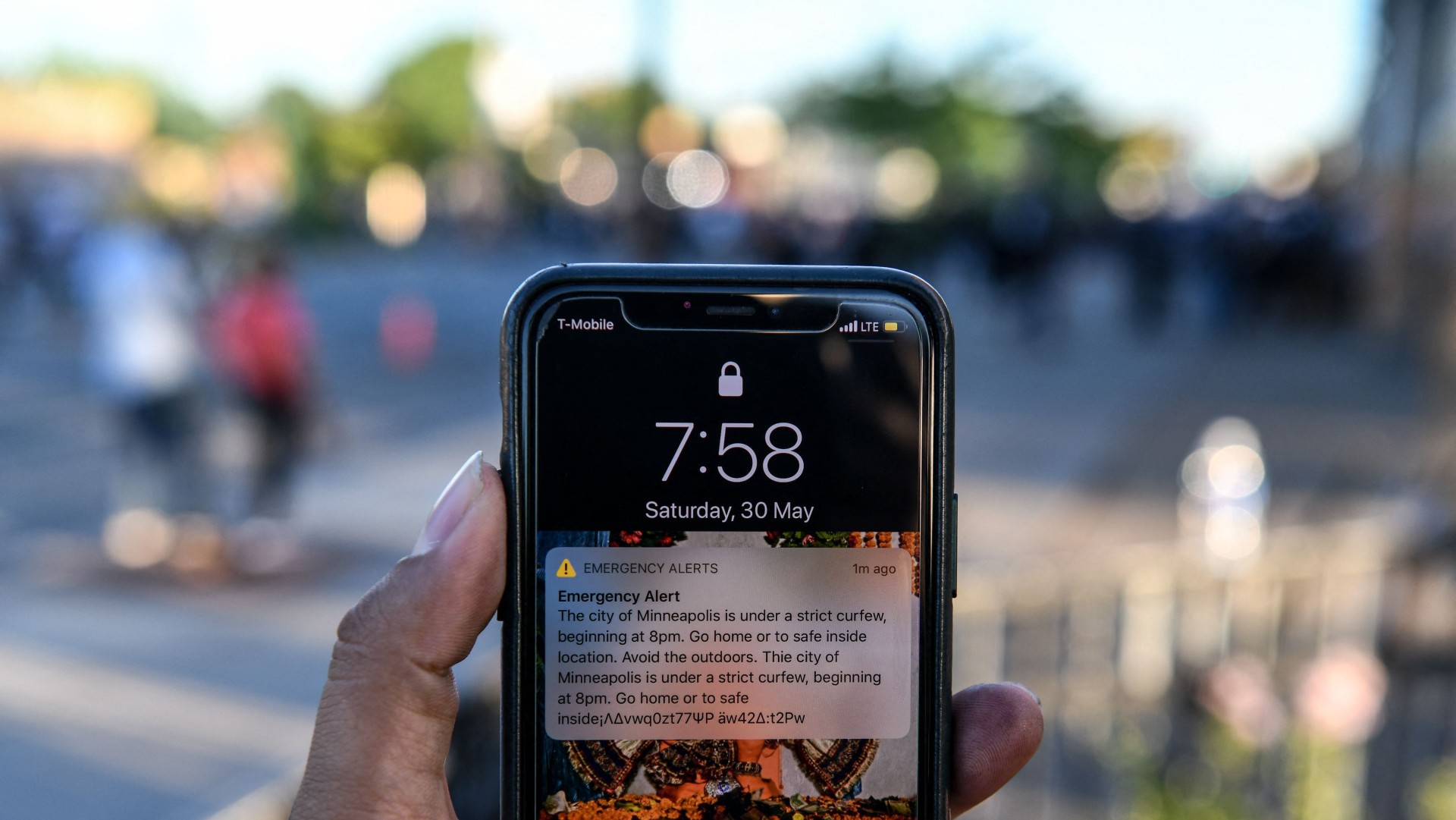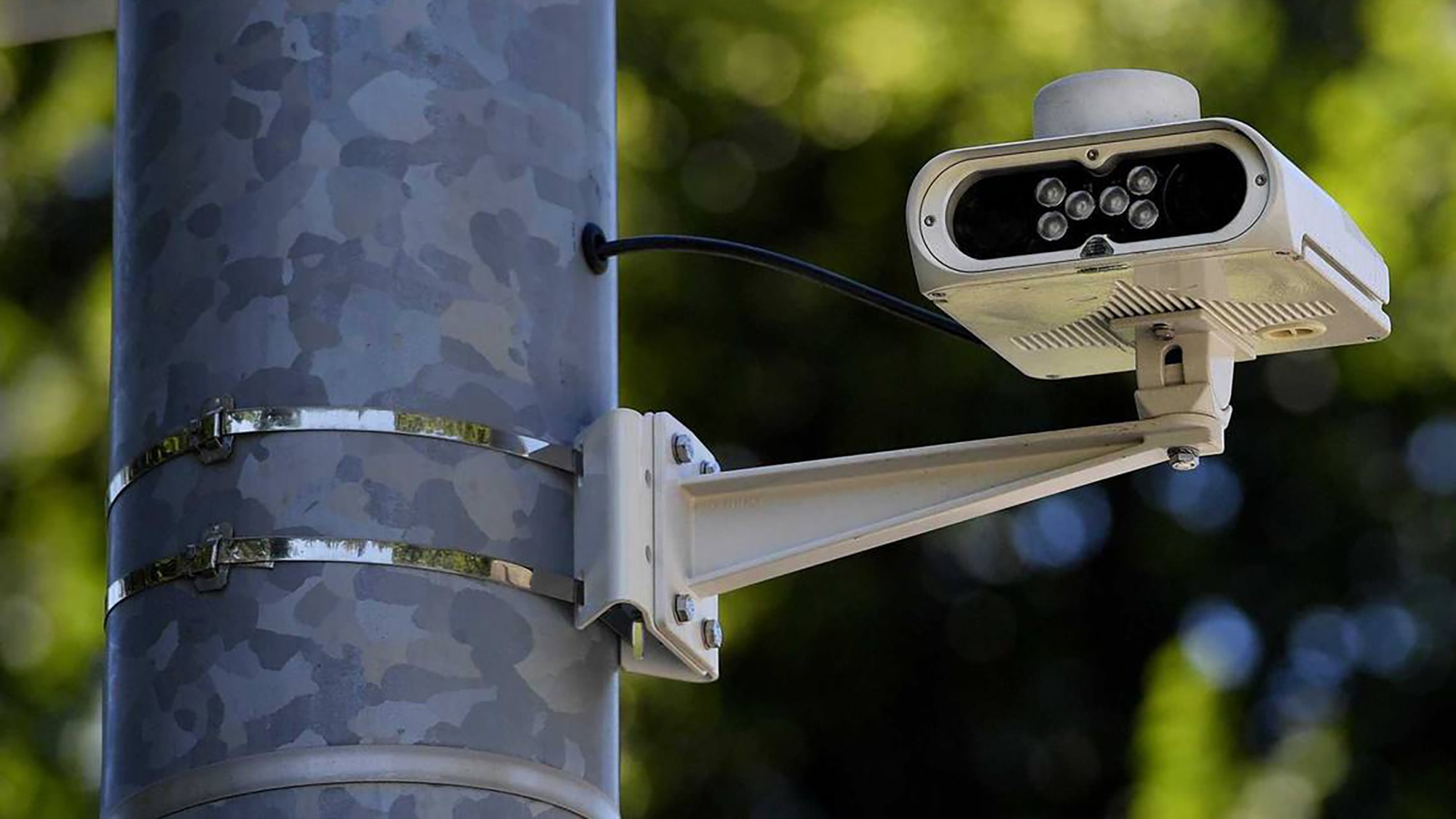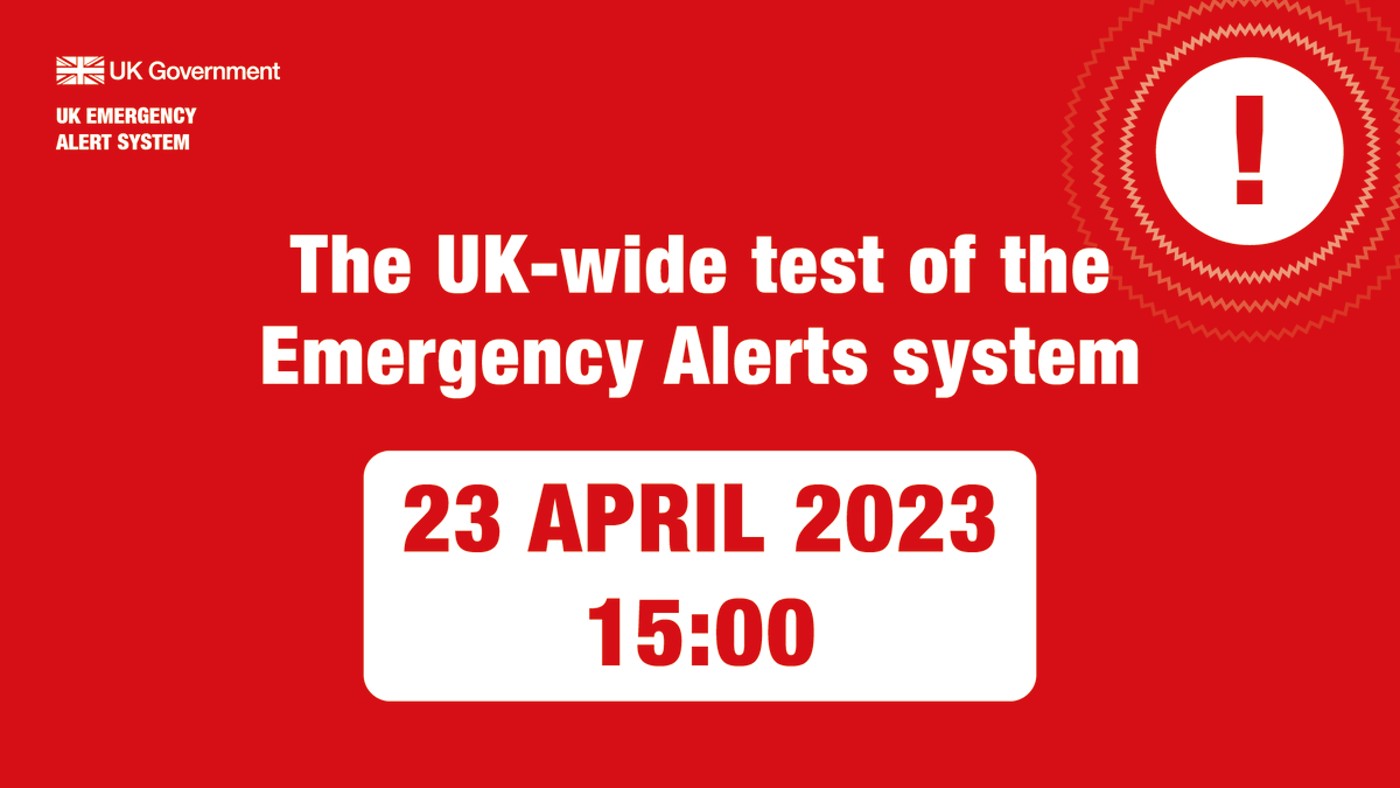Pros and cons of the emergency alert
Already used successfully in US, Greece and Japan, mobile notifications could help save lives, but pose risk to domestic abuse victims and drivers

A free daily email with the biggest news stories of the day – and the best features from TheWeek.com
You are now subscribed
Your newsletter sign-up was successful
Tens of millions of mobile phones are set to go off simultaneously at 3pm on Sunday, as the UK prepares to test its first nationwide emergency alert system.
Messages will be accompanied by a siren sound and vibration that will stop automatically after ten seconds. The alert will make a sound even if a phone is on silent and people will need to tap “OK” or swipe away the notification.
Already operational in countries around the world such as the US, Greece and Japan, alerts are expected to be sent “very rarely, only when there is an immediate threat to life, so it may be months or years before anybody receives one”, reported Sky News.
The Week
Escape your echo chamber. Get the facts behind the news, plus analysis from multiple perspectives.

Sign up for The Week's Free Newsletters
From our morning news briefing to a weekly Good News Newsletter, get the best of The Week delivered directly to your inbox.
From our morning news briefing to a weekly Good News Newsletter, get the best of The Week delivered directly to your inbox.
1. Pro: helps save lives
Cabinet Office minister Oliver Dowden stated the most obvious benefit when he suggested the alert could one day “be the sound that saves your life”. The government has said it would be used in “life-threatening emergencies” to broadcast urgent messages in the event of a disaster such as severe flooding, fires or extreme weather. However, the use of targeted alerts in countries such as the Netherlands and South Korea to control the spread of Covid point to other life-saving applications, especially after the UK government “was criticised during the pandemic for lagging behind other countries on the technology and repeatedly ignoring its own findings that an emergency messaging system could help Britain at a time of crisis”, The Guardian reported.
2. Con: risk for abuse victims
The government has admitted the emergency test on Sunday could put those in abusive relationships at risk by exposing concealed phones. “Monitoring a partner’s phone or depriving them of it is a common factor in many abusive relationships”, said the i news site, while those in abusive relationships “can often rely on concealed phones to communicate with their loved ones or support services”. Acknowledging the threat posed by the alert to people subject to domestic abuse, the government has issued new advice for people with concealed phones to “opt out of the national test either by turning off Emergency Alerts in their phone settings or by switching their phone off”.
3. Pro: free and easy to receive
Crucial to the success of any alert system is that is free of charge to everyone. The government’s official website stresses that every compatible mobile phone or tablet in range of a mast will receive the alert. “Your mobile phone or tablet does not have to be connected to mobile data or Wi-Fi to get alerts. Emergency alerts are free. You do not need to sign up for them or download an app”. The only reasons you will not receive an alert is if a device is turned off or in airplane mode, connected to a 2G or 3G network, Wi-Fi only or not compatible.
4. Con: distraction for drivers
A major concern is that a sudden unexpected siren sound could distract drivers caught unawares, increasing the chance of crashing. The Telegraph reported that “officials are concerned that the potential consequences have not been fully thought through”, with officials meeting the RAC to discuss how any risk to drivers can be reduced. As well as “some form of panic”, president of the AA, Edmund King, also warned “the odd sound could mean they reach for the phone”, increasing the risk of drivers receiving a fine for checking their phone while driving.
A free daily email with the biggest news stories of the day – and the best features from TheWeek.com
5. Pro: can be used at a local level
While the test on Sunday will target every phone in the country, more often than not alerts will be localised. With notifications having already been successfully tested in East Suffolk and Reading, Sky News said they “could be sent to specific areas, however big or small”. For example, everybody in a village where a river was about to burst its banks could be sent a warning alert. The broadcaster said it is unlikely to be used during an active terror attack, however, “as the attackers would then receive a notification as well, but decisions would be taken when and as needed”.
6. Con: danger of going wrong
While similar systems have been credited with saving lives in other countries “botched tests have also been the source of mass panic”, said the i news site. In 2018, a message was mistakenly sent across Hawaii, warning of an incoming ballistic missile attack, and a second message explaining the error not sent for another 38 minutes. Something similar happened in Canada in 2020, when an emergency alert warning millions of people of an “incident” at a nuclear power plant near Toronto was sent in error.
-
 5 blacked out cartoons about the Epstein file redactions
5 blacked out cartoons about the Epstein file redactionsCartoons Artists take on hidden identities, a censored presidential seal, and more
-
 How Democrats are turning DOJ lemons into partisan lemonade
How Democrats are turning DOJ lemons into partisan lemonadeTODAY’S BIG QUESTION As the Trump administration continues to try — and fail — at indicting its political enemies, Democratic lawmakers have begun seizing the moment for themselves
-
 ICE’s new targets post-Minnesota retreat
ICE’s new targets post-Minnesota retreatIn the Spotlight Several cities are reportedly on ICE’s list for immigration crackdowns
-
 The pros and cons of license-plate reader technology
The pros and cons of license-plate reader technologyPros and Cons The technology's use recently led to the arrest of a three-time homicide suspect in Los Angeles
-
 The pros and cons of AI companions
The pros and cons of AI companionsPros and Cons Chatbots are evolving from simple assistants to friendlier digital companions.
-
 Pros and cons of artificial intelligence
Pros and cons of artificial intelligencePros and Cons AI offers ‘unimagined capabilities’ but experts have warned it could serve ‘nefarious aims’
-
 The UK’s new mobile emergency alert system: what is it and how does it work?
The UK’s new mobile emergency alert system: what is it and how does it work?feature Government will test new scheme this month with warning sound and vibration on nation’s phones
-
 Pros and cons of smart thermostats
Pros and cons of smart thermostatsPros and Cons The gadgets allow you to control temperatures remotely but are they really value for money?
-
 The pros and cons of smart meters
The pros and cons of smart metersPros and Cons Real-time energy monitors can help households to budget but they have raised privacy concerns
-
 How facial software can identify liars
How facial software can identify liarsSpeed Read Facial-recognition software could warn immigration officers if someone is lying
-
 UK court examines GCHQ’s bulk hack of phones and laptops
UK court examines GCHQ’s bulk hack of phones and laptopsSpeed Read Judges examine MI5 and MI6 spying tactics exposed by Edward Snowden